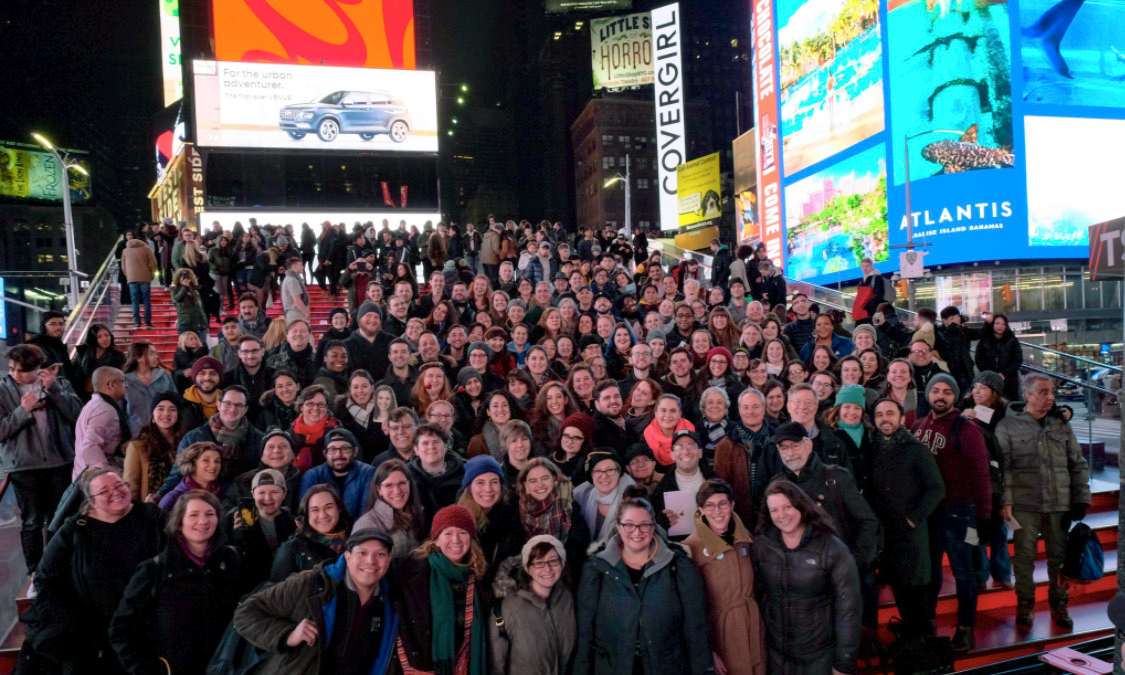Community, Leadership, Experimentation, Diversity, & Education
Pittsburgh Arts, Regional Theatre, New Work, Producing, Copyright, Labor Unions,
New Products, Coping Skills, J-O-Bs...
Theatre industry news, University & School of Drama Announcements, plus occasional course support for
Carnegie Mellon School of Drama Faculty, Staff, Students, and Alumni.
CMU School of Drama
Wednesday, September 23, 2020
Year of the Stage Manager
HowlRound Theatre Commons: Stage managers typically operate in the shadows, committed first and foremost to what is happening onstage. An occupation people used to fall into, stage managers are now setting their sights on the field as early as grade school. For many of us, we cannot imagine doing anything else. The work is often thrilling. We are the first ones in and the last ones out. The personalities, the wants, the needs, the cues, the pressure, the conflict, the resolution, the spike tape, the half-hour call—if it was not worth it, we would not do it. But the truth is: we can hardly agree on what it is we actually all do.
Subscribe to:
Post Comments (Atom)

4 comments:
I think this article covered a wide range of topics all centered around the Year of the Stage Manager, but one of the most interesting parts of this article was how so many stage managers feel differently about their status within the industry. The adage “It depends” is clearly present throughout the theater and entertainment industry, and there are so many things that tend to change and be unique from production to production. But this feeling that nothing is ever quite concrete obviously makes it hard to recognize any one category of job as it is always changing. The stage manager in one show could have entirely different responsibilities than a stage manager on another show. I think that is what Year of the Stage Manager so expertly navigates, not creating one definition of the job and role, but instead acknowledging all the different perspectives people in the community could have and creating a place for sharing opinions, experiences, and expertise.
As someone who is currently planning to have a concentration in stage management, I think it is rather amazing how the professionals in the industry are constantly changing the limits and redefining what it means to be a stage manager. Since it covers such a wide range of things, I do agree that advancing the occupation as a whole may be difficult, but the bar is always raising for the individual and that challenge becomes part of the fun. I have always thought it was odd that stage managers have been lumped into the Actors’ Equity Association, yet they receive little to no recognition like an actor would, though I do understand that part of the job is to be concealed in the shadows of backstage. Also the article mentioned how there was push back regarding the thought of a stage managing Tony Awards category which I believe would just be hard to score overall because, as said earlier, the work of a stage manager is ever changing and would vary from person to person.
This brought me back the memory in my high school, when I first worked as a stage manager for the production. One of the faculty member was also majoring in stage management at her college. As I worked along with her assistance, I realized that stage manager isn’t a person who just simply organizes the rehearsals and calls the show. I think the job of stage manager is especially hard to define, since I definitely think that there are more to his or her responsibility, which would include addressing team’s mindsets and social awareness as well… and I think that this article did a decent job at indicating such traits. I felt good as COVID-19 seems to have given people various opportunities to improve, not only in terms of virtual technologies but also with regards to the mindsets. I am excited to see the theaters reopening their doors with people of more awareness.
I agree with the mission of the Year of the Stage Manager - the nature of the job means that recognition for our work is hard to come by outside of the industry due to the invisibility of the position to the audience. I also thought the points regarding the fluid nature of the position making it hard to define were particularly important with the rise of online performances. Working on JPPs right now, we’re seeing the stage manager as responsible for turning actor cameras on and off and dealing with video transitions and title slides, which is certainly not in the job description from 6 months ago, and will probably continue to evolve as we either embrace or run away from digital theatre. I enjoyed reading this article, particularly with how it didn’t shy away from addressing the racism issues in the industry and within stage management specifically. When I opened the article and looked at the photo of ‘100 Stage Managers’, my first reaction was ‘wow, that's a lot of white people’ and I was hoping for a comment of the kind to be included. There is a lot of discussion going on about how to make our industry safer and more welcoming for POC, and I feel like a big part of that is by ensuring that POC are represented in all areas of production.
Post a Comment